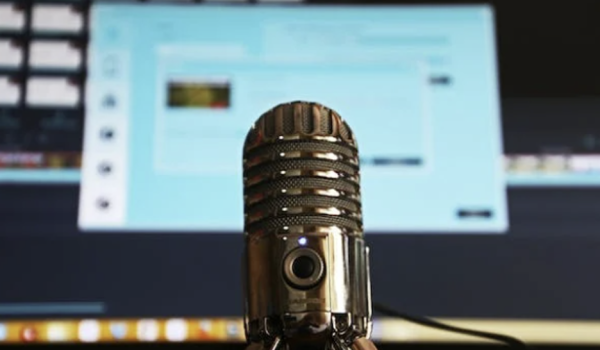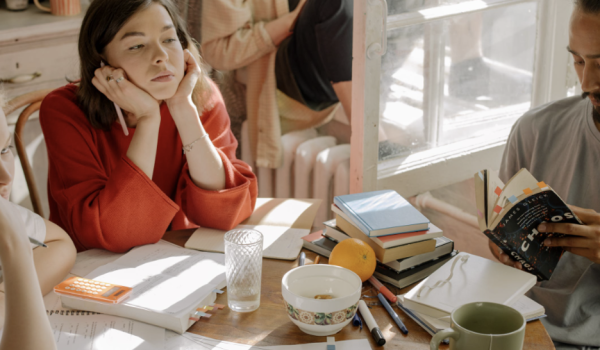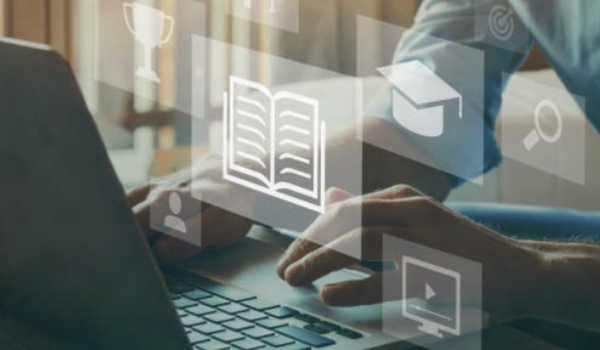Studying abroad is an exciting and life-changing experience. Embracing a new culture, learning and developing new skills, growing wider professional and social networks, and meeting new friends are valuable for personal growth. However, building study habits can be a struggle while studying abroad. Let’s explore some suggestions and advice.
Studying abroad is the dream of many students, and starting such a journey brings a lot of emotions. However, organizing self-learning can be as challenging as the adaptation process of the country receiving us. Although there are plenty of blogs and recommendations for developing study habits at all educational levels, there are no magical recipes to ensure our learning process will go smoothly.
Every person is different and deals with learning in a unique way. Therefore, it is much better to think of a strategy for individual learning, rather than to think of a flexible study schedule. This article explores some general advice to guide you on how to strengthen your self-study habits before starting this new adventure.
Prioritizing Your Learning Outcomes
Thinking of your learning as a process full of outcomes can be more enriching than seeing it as a knowledge-acquisition process. Usually, every class is organized by competencies or skills to be achieved along the course. Therefore, a student can actually organize their time and assignments to ensure those outcomes can be achieved according to their own personal learning pace. Prioritizing learning outcomes is very helpful for that.
For example, if you take a Chemistry class and realize it will be tough for you, then a good idea would be to thoroughly check its syllabus and save some time during the first weeks to work on the first competencies. This will help you learn the basics before going to the harder parts of the course. If you take an English class at the same time and see that it will not be as tough as Chemistry, then you can give priority to the hardest first, and then to the others.
Normally, it is easier to give priority to the easier classes. However, if we do so, then we are more likely to procrastinate in the hardest class. And with procrastination, both our grades and our learning capacities might be affected. Although it will also depend on other factors, such as how a person deals with deadlines and time pressure.
Making Lectures and Coursework Effective
An important part of the learning process occurs in the lecture, so it would be wise to make sure those minutes are efficiently used. Some people dedicate plenty of time to studying before the lecture and also save time to study after it during the week. But regardless of that, some efficient learning habits are useful. For example, avoiding external distractions during lecture time can help you fully focus on what you learn. Also, making effective notes about what your professor or teacher says can help you link theories from the book with the assignments.
In that sense, the advice for you is to identify which factors might reduce your attention to the lectures, and manage them properly. Just to name some examples: the use of cellphones and social media, the seat you choose in class, your distance from the lecturer, or any other potential distractor. And if possible, dedicate at least some minutes to review the contents learned in the previous lecture in order for you to recap and link your learning with the next session.
Managing Time and Styles for Self-Study
Your learning process can also continue after the lecture, so your time and place for self-study matter. It is very helpful to organize your day and week in order to establish your best moments for self-study. Try to set up a time that allows you to fully focus on self-learning and recapping what was covered in the lectures, as well as to reflect on why and how you learn using metacognition skills. It is better to have some study periods with flexible breaks to refresh your mind and avoid boredom. But make sure you focus very well during your study moments! Using mind maps, graphs, charts, drawings, notes, voice recordings or even videotapes explaining what you are reading to yourself can be a dynamic way to study beyond reading.
Additionally, you can also try study groups, especially if certain assignments are too complex or if you feel like a discussion about that topic will be more productive for your own learning. In that sense, you can also share the idea with your study partners.
Finding a Balance Between Personal and Student Life
Spare time also matters for learning! Studies have found that free time allows students not only to take care of their mental health and motivation but also has a positive impact on the learning process. And being a student is an important part of our lives in which we also grow as individuals, get to meet friends, and develop personal networks for social life.
Studying is important, but effective learning should not mean an unbalanced personal life. Therefore, make sure you also save time for socializing and taking care of your own well-being in parallel to self-learning. Dedicate enough time for reflection, hobbies, and sharing time with family and friends. Self-learning is not about spending hours reading and imposing yourself to memorize things. Learning can be fun! And that also includes giving yourself time for all other areas of your life. And keep in mind that spare time is also a great opportunity for non-formal learning, which is also very important for social growth and personality development.
Are you looking for warm and comfortable accommodation abroad?
Amber is a platform that offers thousands of houses right from student accommodation in Manchester to student accommodation in Coventry. Focusing on study requires commitment and a quiet and hygienic environment. Amber provides affordable and hygienic student accommodations all over the world. They guarantee quality and secure homes, from student accommodation in Melbourne to New York. So no matter where you wish to study abroad, Amber will have a house for you. Visit the website to start booking your home away from home absolutely hassle-free!
To conclude, embracing the new adventure of studying a semester abroad can be an even greater experience if we study smarter rather than harder. Creating study habits is totally flexible, and every person has the freedom to try and change such habits as necessary. However, the balance between studying and personal life must always be prevalent. Maximizing your learning experience can be highly fruitful if you think of your own study process in a strategic way.
Photo: muse studio/Shutterstock
You might also like:
Support us!
All your donations will be used to pay the magazine’s journalists and to support the ongoing costs of maintaining the site.
Share this post
Interested in co-operating with us?
We are open to co-operation from writers and businesses alike. You can reach us on our email at [email protected]/[email protected] and we will get back to you as quick as we can.










